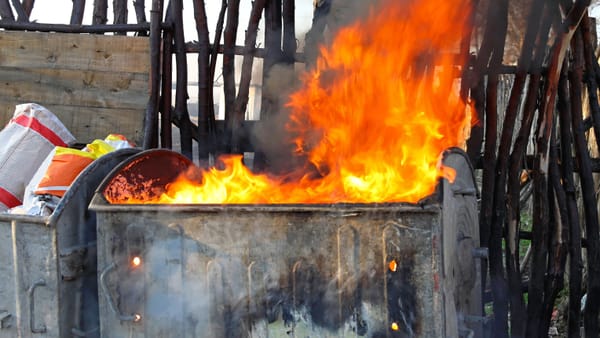We actually shouldn’t care about local college students
Dozens of mainstream writers and pundits have carved out a career obsessing over the activity of kids at tiny liberal arts schools. It’s a…

Dozens of mainstream writers and pundits have carved out a career obsessing over the activity of kids at tiny liberal arts schools. It’s a joke.
My dad sometimes tells me a story about his time in college in the 60’s during the Vietnam War. He says that sometimes he would go to class and there’d be a sign on the door saying that the professor had cancelled class to go attend an anti-war protest. The sign, he noted, encouraged all the students to attend the protest.
Eventually my dad went to the dean to complain, providing an itemized list of cancelled classes and demanding a refund for the classes he’d been forced to meet. Shortly after, a new policy was introduced at his school saying professors couldn’t cancel class to attend a protest.
These days, an incident like this would likely go hyper-viral in today’s social media environment. The cancellation of classes as a scandal would be the perfect mix of contemptible student ambitions and institutional arrogance to grab the attention of the dozens of writers and pundits who now dedicate themselves to trolling for campus outrage bait.
The campus culture war has become a a full fledged beat, with such titans of of the journalism game such as the New York Times, the Atlantic, and the New Yorker each having a dedicated campus culture reporter and every year news publications allocate massive resources to tracking down the local machinations of liberal college students.
But why do we really care? Ultimately, students themselves don’t really matter.
Students, largely, don’t have any real power. Recent history has shown that students are not a reliable voting bloc, and politicians largely ignore their demands. They don’t, generally, have a ton of economic power either. So why do so many well esteemed news organizations devote so much of their precious few newsroom dollars to covering, and often exaggerating the happenings of students?
The answer is pretty simple: people read the stories. News of a particularly outrageous bit of student liberalism hits all the touchstones needed to scare an older, wealthier readership demographic.
Stories of “kids these days” are older than the invention of newspapers, and campus culture outrage fuel is just the latest example. It has gone by many names over the years. Before it was “cancel culture” it was “PC culture,” before that it was “hippy culture,” and so on down the line, each generation getting a new shiny rebranding to continue the grift.
But as journalist and podcaster Michael Hobbes has repeatedly demonstrated, many of the anecdotes repeated in the press are often exaggerations, or outright lies. The cumulative effect of having dozens of large publications repeating the same five anecdotes over and over again is that the threat of so-called “campus illiberalism” is blown out of reasonable proportion.
Students aren’t about to march down your local Main Street demanding fealty and the use of correct pronouns anytime soon, nor are they going to get elected to office and change the laws overnight. The Atlantic’s Anne Applebaum even went so far as to compare students getting mad to Mao’s Cultural Revolution and Stalin’s purges. Other commentators have compared students asking for a more open campus society to the Spanish Inquisition, which resulted in the state-sponsored execution of millions of people.
These comparisons are flatly ridiculous, but they do get clicks.
What’s really going on here is that students are going off to college and being exposed to new people and ideas. But older parents and grandparents are also losing a child who had shared their homes for 18 years. The campus culture beat serves to stoke anxieties over losing every day contact once kids go off to college.
“What if my Susie comes back with wild-eyed ideas like ‘trans people should be left alone,’ or ‘America is kinda racist still,’” may turn into bigger family arguments at the Thanksgiving table. All parents fear getting left behind by their kids, and schools and college are often the vectors that simultaneously turn children into effective adults, while also allowing kids to turn into their own people rather than just an extension of their parents’ personality.
That, ultimately, drives the campus culture beat. Parents want to know, and often control, what their kids are learning and getting exposed to in college so as not to lose touch, or to have to examine their own prejudices and habits.
We see this also in the moral panics over so-called critical race theory and gender ideology.
At the end of the day though, students don’t really matter in a systemic sense. You’re not going to get thrown in prison for using the wrong pronoun or whatever it is that keeps you up at night. Students don’t have any power.
Maybe it’s time to stop putting such a microscope on them.




